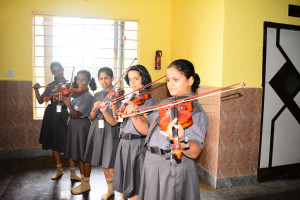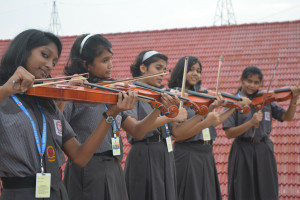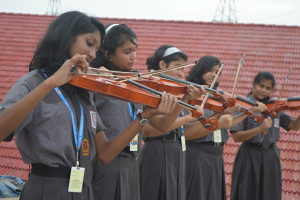MUSIC: “Music learning supports all learning. Not that Mozart makes you smarter, but it’s a very integrating, stimulating pastime or activity,” Guilmartin says. Research indicates the brain of a musician, even a young one, works differently than that of a nonmusician. “There’s some good neuroscience research that children involved in music have larger growth of neural activity than people not in music training. Our trained faculty of music is committed to give the students the tools they need to study and perform, as well as the confidence and inspiration.
ART: “Art does not solve problems, but makes us aware of their existence,” sculptor Magdalena Abakanowicz has said. Arts education, on the other hand, does solve problems. Years of research show that it’s closely linked to almost everything that we as a nation say we want for our children and demand from our schools: academic achievement, social and emotional development, civic engagement, and equitable opportunity. Involvement in the arts is associated with gains in math, reading, cognitive ability, critical thinking, and verbal skill. The school has an art room having facility for drawing, painting, sculpture, pottery and fabric design that serves for the imagination of our students, high skilled art teacher is present to guide them in their works.



